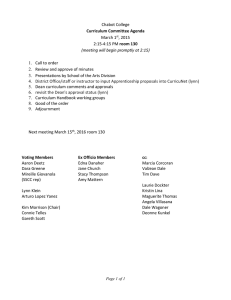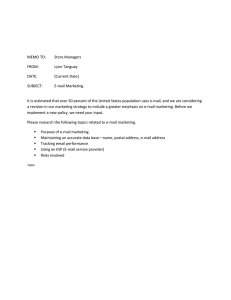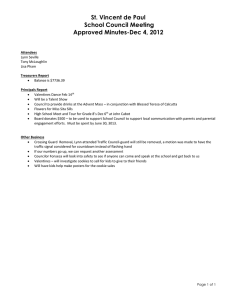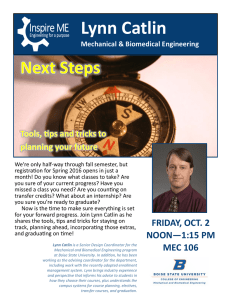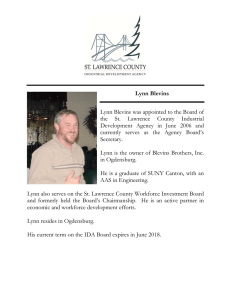An interview with Professor Lynn Frewer
advertisement
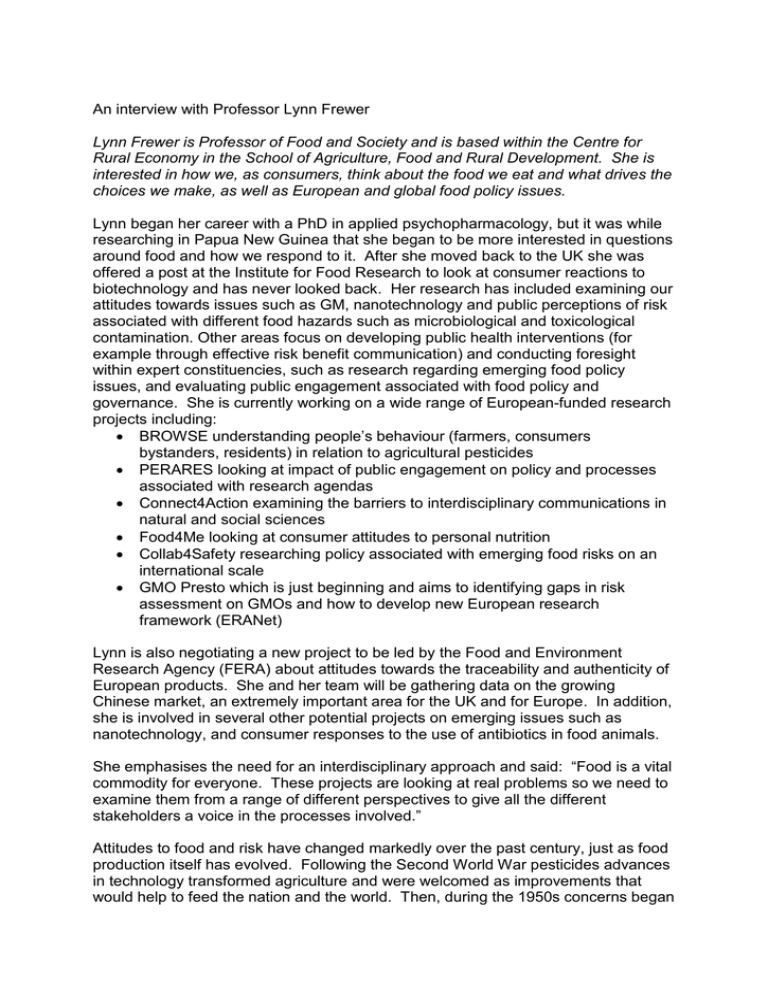
An interview with Professor Lynn Frewer Lynn Frewer is Professor of Food and Society and is based within the Centre for Rural Economy in the School of Agriculture, Food and Rural Development. She is interested in how we, as consumers, think about the food we eat and what drives the choices we make, as well as European and global food policy issues. Lynn began her career with a PhD in applied psychopharmacology, but it was while researching in Papua New Guinea that she began to be more interested in questions around food and how we respond to it. After she moved back to the UK she was offered a post at the Institute for Food Research to look at consumer reactions to biotechnology and has never looked back. Her research has included examining our attitudes towards issues such as GM, nanotechnology and public perceptions of risk associated with different food hazards such as microbiological and toxicological contamination. Other areas focus on developing public health interventions (for example through effective risk benefit communication) and conducting foresight within expert constituencies, such as research regarding emerging food policy issues, and evaluating public engagement associated with food policy and governance. She is currently working on a wide range of European-funded research projects including: BROWSE understanding people’s behaviour (farmers, consumers bystanders, residents) in relation to agricultural pesticides PERARES looking at impact of public engagement on policy and processes associated with research agendas Connect4Action examining the barriers to interdisciplinary communications in natural and social sciences Food4Me looking at consumer attitudes to personal nutrition Collab4Safety researching policy associated with emerging food risks on an international scale GMO Presto which is just beginning and aims to identifying gaps in risk assessment on GMOs and how to develop new European research framework (ERANet) Lynn is also negotiating a new project to be led by the Food and Environment Research Agency (FERA) about attitudes towards the traceability and authenticity of European products. She and her team will be gathering data on the growing Chinese market, an extremely important area for the UK and for Europe. In addition, she is involved in several other potential projects on emerging issues such as nanotechnology, and consumer responses to the use of antibiotics in food animals. She emphasises the need for an interdisciplinary approach and said: “Food is a vital commodity for everyone. These projects are looking at real problems so we need to examine them from a range of different perspectives to give all the different stakeholders a voice in the processes involved.” Attitudes to food and risk have changed markedly over the past century, just as food production itself has evolved. Following the Second World War pesticides advances in technology transformed agriculture and were welcomed as improvements that would help to feed the nation and the world. Then, during the 1950s concerns began to emerge about the potential consequences for landscapes, for ecology and for human health. For most of the general public, Rachel Carson’s book “Silent Spring” and other publications of its kind provided the first indication that there could be a downside to technical advances. Lynn said “At that time the public began to mistrust the Government and its institutions. Crises such as BSE and new variant CJD in UK, and the dioxin scare in Belgium, for example, seemed to signal that technology was out of control. At the same time those incidents brought back to the public more information about how food is produced, something that had been lost over previous years. After that there was a lot of discussion about risk perception, and why the public are irrational, though in fact they aren’t irrational, but they may be using different cues about technology to make their decisions. In general, risks that we perceive as “unnatural”, such as contamination of food, tend to be judged more threatening than natural ones, and hazards that we cannot control are more of a threat than risks we choose to take voluntarily. We have also become much more concerned with ethical issues such as animal welfare and the environment when making decisions. “Where we are today, post GM crops, looking at advent of GM animals, talking about nano technology and synthetic biology, I think you find a lot of different types of groups within the public, all with different opinions. There is a lot more questioning about the innovation processes, possible alternatives and what are the best ways of doing things. “Of course the other big issue for us all is food security. This is the driver for a lot of innovation, but I feel we are still looking at mono disciplinary solutions when really we need to integrate consumer behaviour with technological innovation, with supply chains and with policies to achieve really sustainable solutions.” New projects coming up on Lynn’s research agenda include the topic of risk communication, looking at theoretical approaches that are currently used and addressing the gaps, and developing an understanding of different approaches to maintaining food security, for example through the introduction of novel proteins into the food chain. The other major challenge on the horizon is synthetic biology. She said: “The public haven’t reacted negatively to nano technology as we might have expected after GM, but, looking ahead, there are broad ethical and moral issues related to synthetic biology and the idea that we may be creating life. We need to know much more about how stakeholders will respond to that.”

